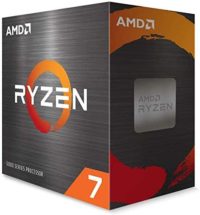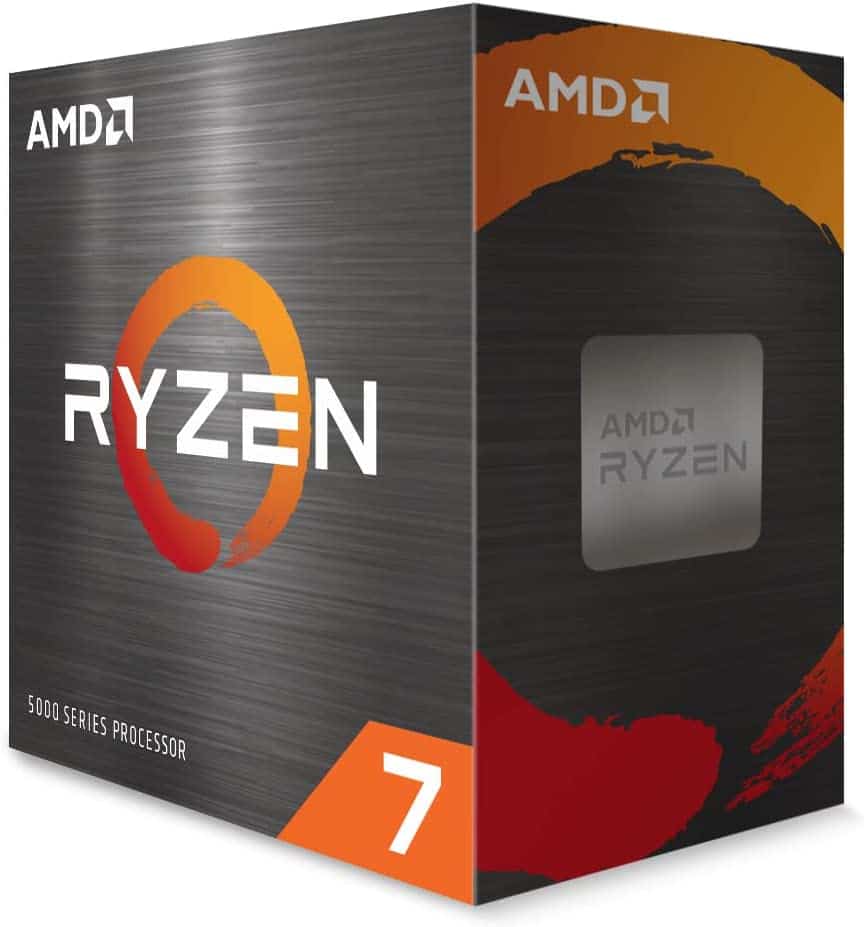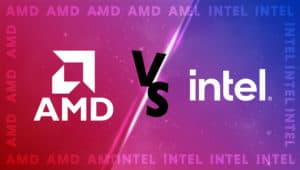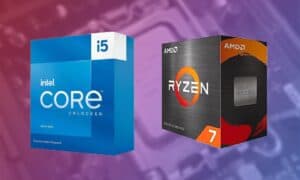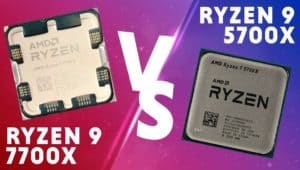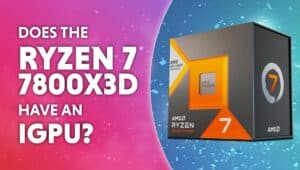Is the Ryzen 7 5700G good for gaming in 2024? Here’s what we think
Is the Ryzen 7 5700G still good for gaming?
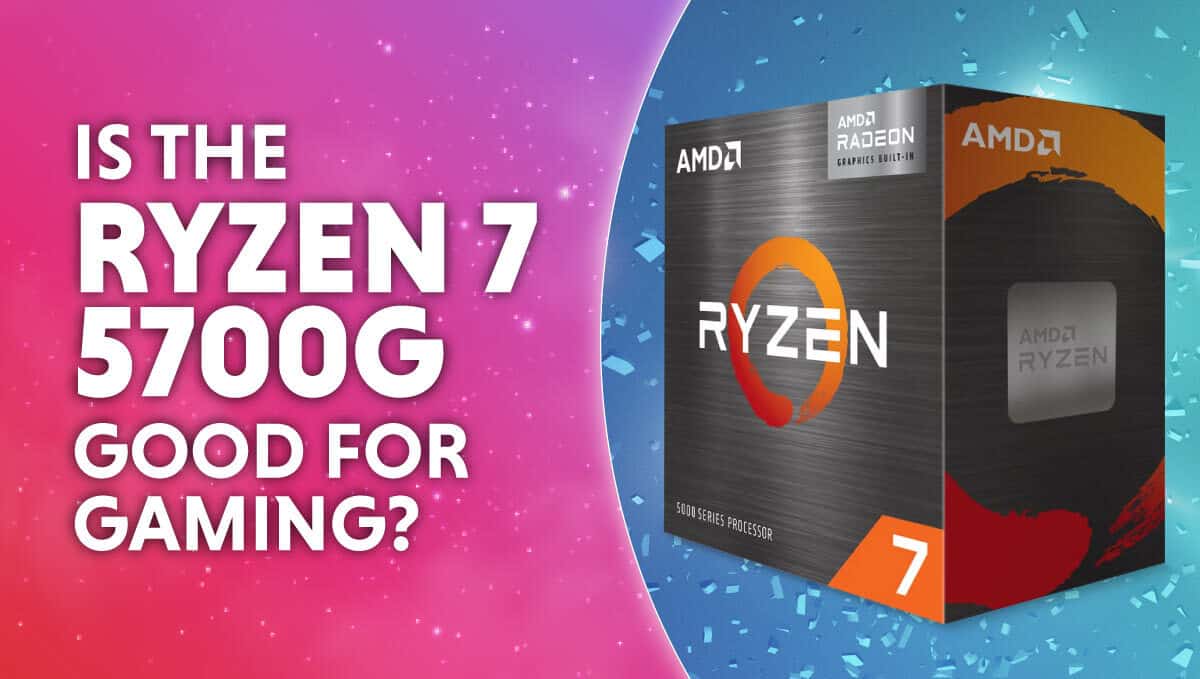
WePC is reader-supported. When you buy through links on our site, we may earn an affiliate commission. Prices subject to change. Learn more
AMD looked to bolster its “Cezanne” lineup of APUs with the launch of the Ryzen 7 5700G in April of 2021. The Ryzen 7 5700G was the fastest APU currently offered by AMD, and it is built upon the same Zen 3 architecture as the rest of the Ryzen 5000 lineup. The 5700G was aimed at the mid-range to high-end segment of the market, and it offered a solution to a very specific problem.
When the Ryzen 7 5700G was released, the consumer desktop GPU market was going through a severe crisis. As a result, lots of people were left without access to a powerful GPU, which is where APUs such as the 5700G came in. These APUs could be used as an intermediary solution for work and light gaming while the user was waiting to get their hands on a brand-new GPU. The 5700G surprised everyone, with its respectable performance and value for money. Let’s dive a little deeper, shall we?
Ryzen 7 5700G Specs
At first glance, the Ryzen 7 5700G looks quite similar to the AMD Ryzen 7 5700X, just with integrated graphics. Upon deeper inspection, however, we find some key differences between the two SKUs that are responsible for the slight difference in gaming performance.
Ryzen 7 5700G
- Architecture: Zen 3
- Cores: 8
- Threads: 16
- Base Clock: 3.8 GHz
- Max. Boost Clock: 4.6 GHz
- L3 Cache: 16MB
- TDP: 65W
- Integrated GPU: 8-Core Vega
Ryzen 7 5700X
- Architecture: Zen 3
- Cores: 8
- Threads: 16
- Base Clock: 3.8 GHz
- Max. Boost Clock: 4.6 GHz
- L3 Cache: 32MB
- TDP: 65W
- Integrated GPU: none
While both the 5700G and 5700X have 8 cores and 16 threads, the latter actually has double the amount of L3 cache at 32MB compared to 16MB for the 5700G. This is a significant difference as the amount of accessible L3 cache often has a direct impact on latency, which in turn plays a crucial role in gaming performance. There is also a slight difference in the base clock of the two CPUs, but that particular number is quite insignificant in the modern day thanks to aggressive boosting techniques such as Precision Boost. Still, for serious games, the 5700X could well be the better option of the two.
A significant disadvantage of the Ryzen 7 5700G is that it only supports PCIe 3.0 connectivity. This can limit the speed and bandwidth of your storage devices as well as the bandwidth of your graphics card to a certain extent. In 2023, this starts to become a real limitation.
Is the Ryzen 7 5700G good for gaming?
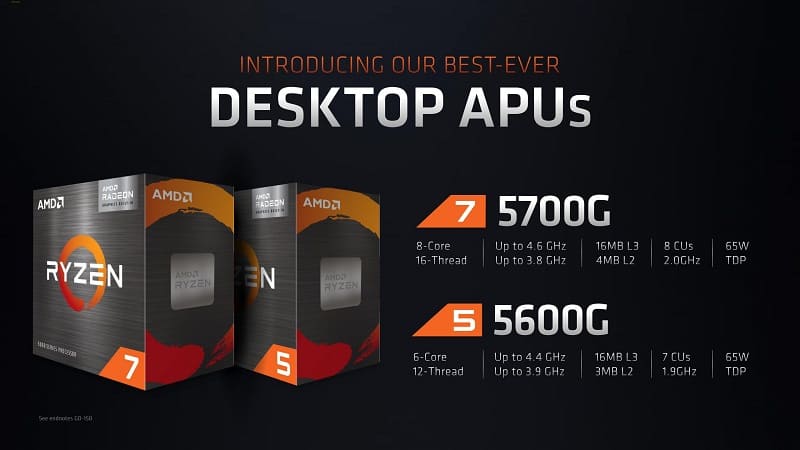
In short, yes it’s good for gaming – but it does have its limitations.The Ryzen 7 5700G can be considered as a cut-down version of the Ryzen 7 5700X, which is a cut-down version of the Ryzen 7 5800X. Objectively, the Ryzen 7 5700G delivers great gaming performance in some titles thanks to its impressive Zen 3 architecture and high boost clocks. As a standalone gaming processor, the Ryzen 7 5700G is more than good enough for gaming – but it depends what ‘good enough’ means for you.
You can pair the Ryzen 7 5700G with pretty much any modern gaming GPU, although we would not advise pairing with the ultra-powerful RTX 4080 and RTx 4090, with minimal bottlenecking at 1440p and 4K. While yes, you may gain a couple of frames with a faster Ryzen 9 or Core i9, but the Ryzen 7 5700G still delivers great value for money when it comes to FPS-per-dollar numbers.
On the iGPU side, the 8-Core Vega GPU is not the strongest GPU by any stretch of the imagination, but it gets the job done. You can enjoy some light gaming and even run basic productivity applications solely on the Vega iGPU. The iGPU can provide a decent gaming experience on 720p or 1080p in eSports games like Rocket League and Valorant, if you are willing to be a little flexible with the graphical settings.
Best Motherboard Chipset for Ryzen 7 5700G
Just like all the other Ryzen 5000 series CPUs, the AMD Ryzen 7 5700G supports various chipsets on the AM4 socket. The official support includes the X570, B550, X470, B450, and A520 chipsets, but some chipsets are better than others when it comes to Ryzen 7 5700G compatibility.

Even though the Ryzen 7 5700G is a mid-range CPU designed to maximize the value proposition, it is still quite a powerful processor on its own. Moreover, it is unlocked for overclocking which can be a great way to squeeze out some extra performance. This is why the B550 chipset option makes the most sense for the Ryzen 7 5700G. The 5700G does not support PCIe 4.0, however, so you cannot use the PCIe 4.0 functionality of the 500-series motherboards. You can also go with the B450 and X470 options if you are looking to save a buck, but the connectivity on those motherboards is often a bit poor by modern standards.
Final word
APUs are quite underrated in the modern gaming space, but the Ryzen 7 5700G seems to be an exception. Delivering excellent gaming performance at a reasonable price tag, while sporting decent integrated graphics, the Ryzen 7 5700G can be right at home in a modern gaming or media consumption PC. It can even help you pass the time with some light gaming while you are waiting for your new graphics card! If you’re looking for a bigger CPU upgrade, make sure to check out the latest and greatest on the market with our best CPUs for gaming guide.

